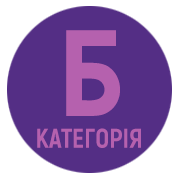ADAPTIVE PHYSICAL EDUCATION AS AN IMPORTANT FIELD OF SOCIAL PRACTICE
DOI:
https://doi.org/10.32782/inclusion/2023.1.6Keywords:
adaptive physical culture, motor activity, adaptation, social practice, persons with disabilities.Abstract
The article reveals the concept of adaptive physical culture as an independent scientific direction, the main goal of which is the formation of vital and professionally important abilities and skills, the development and improvement of physical and psychological qualities of persons with disabilities. The study of the experience of educational activity by directions of training, specializations, disciplines, pedagogical practices, which involve the training of personnel in adaptive physical activity, physical rehabilitation, kinesiotherapy, adaptive physical education, active recreation in institutions of higher education of the leading countries of the world allowed a deeper understanding of the philosophy, content, specificity work with persons who have persistent deviations in their state of health, clarify and specify educational programs on adaptive physical culture. Adaptive physical culture belongs to the new directions of professional training of specialists and is a complex multifaceted socio-pedagogical phenomenon, and its theory acts as a scientific direction that studies the structure, functions, principles, means and methods of rationally organized motor activity of persons with disabilities. Adaptive physical culture involves the involvement of a wide range of means and methods of this type of culture, which is the basis, the basis of the socialization of the personality of a person with disabilities, his adaptation to work or retraining, and generally self-development, self-expression and self-realization. It is emphasized that adaptive physical culture represents an important branch of social practice and is called for with the help of rationally organized motor activity as a natural stimulus for life, using the functions that have been preserved, residual health, natural physical resources and spiritual forces of persons with disabilities, as much as possible bring the psychophysical capabilities and features of the body closer to the requirements of society.
References
Індивідуальні методики адаптивної фізичної культури для осіб із сенсорними порушеннями : навчальний посібник для студентів ВНЗ / Н.Г. Байкіна та ін. Запоріжжя : Запорізький національний університет, 2014. 341 с.
Веневцев С.И., Дмитриев А.А. Оздоровление и коррекция психофизического развития детей с нарушением интеллекта средствами адаптивной физической культуры. Москва : Советский спорт, 2004. 104 с.
Дмитриев А.А. Физическая культура в специальном образовании : учебное пособие для студентов высших педагогических учебных заведений. Москва : Академия, 2002. 176 с.
Колишкін О.В. Теоретико-практичні основи адаптивної фізичної культури : навчальний посібник. Суми : Сумський державний педагогічний університет імені А.С. Макаренка, 2014. 425 с.
Круцевич Т.Ю., Когут І.О. Передумови виникнення та розвитку адаптивного спорту. Фізичне виховання, спорт і культура здоров’я у сучасному суспільстві : збірник наукових праць Східноєвропейського національного університету імені Лесі Українки / уклад. : А.В. Цьось, С.П. Козіброцький. Луцьк, 2013. № 1(21). С. 336–342.
Частные методики адаптивной физической культуры : учебное пособие / под ред. Л.В. Шапковой. Москва : Советский спорт, 2003. 464 с.
Чудная Р.В. Адаптивное физическое воспитание : монография. Киев : Наукова думка, 2000. 358 с.







